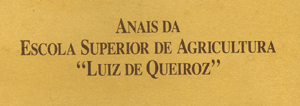Microscopic examinations of 160 samples of cereals (rice, beans, wheat corn, oats, peas and sorghum), 40% provided by Instituto Adolfo Lutz and collected from large distributors as COBAL, CIBRAZEM, PETROPACK, CEAGESP and DECOM, and 60% acquired at many small retailers, realized upon receipt and after 42 days incubation at 25°C and 70% relative humidity showed that 49% of the samples presented primary stored food mites. Of the infested samples, 48% had Tyrophagus putrescentiae (Schrank), 17.5% Aleuroglyphus ovatus (Troupeau), 6.8% Glycyphagus domesticus (DeGeer) , 4.37% Chortoglyphus arcuatus (Troupeau), 3.8% Suidasia pontifica Oudemans, 3.12% Blomia tropicalis Bronswijck, Cock & Oshima, 1.25% Histiostoma sp. and 0.6% Dermatophagoides pteronyssinus (Trouessart). Secondary mites were also present, mainly Tarsonemus sp. , Cheyletus malaccensis Oudemans and Blattosocius dentriticus (Berlese). Samples originating from the large distributors, when infested, had much fewer mites than those from the small retailers where the cereals remain over much longer periods before they are sold out and replaced. The presence of mites in samples after 42 days of incubation when their examination upon receipt was negative for these pests does not preclude the presence of mite eggs. Sitophilus oryzae (L.) (Insecta, Coleoptera) was common in rice, corn and wheat samples.
